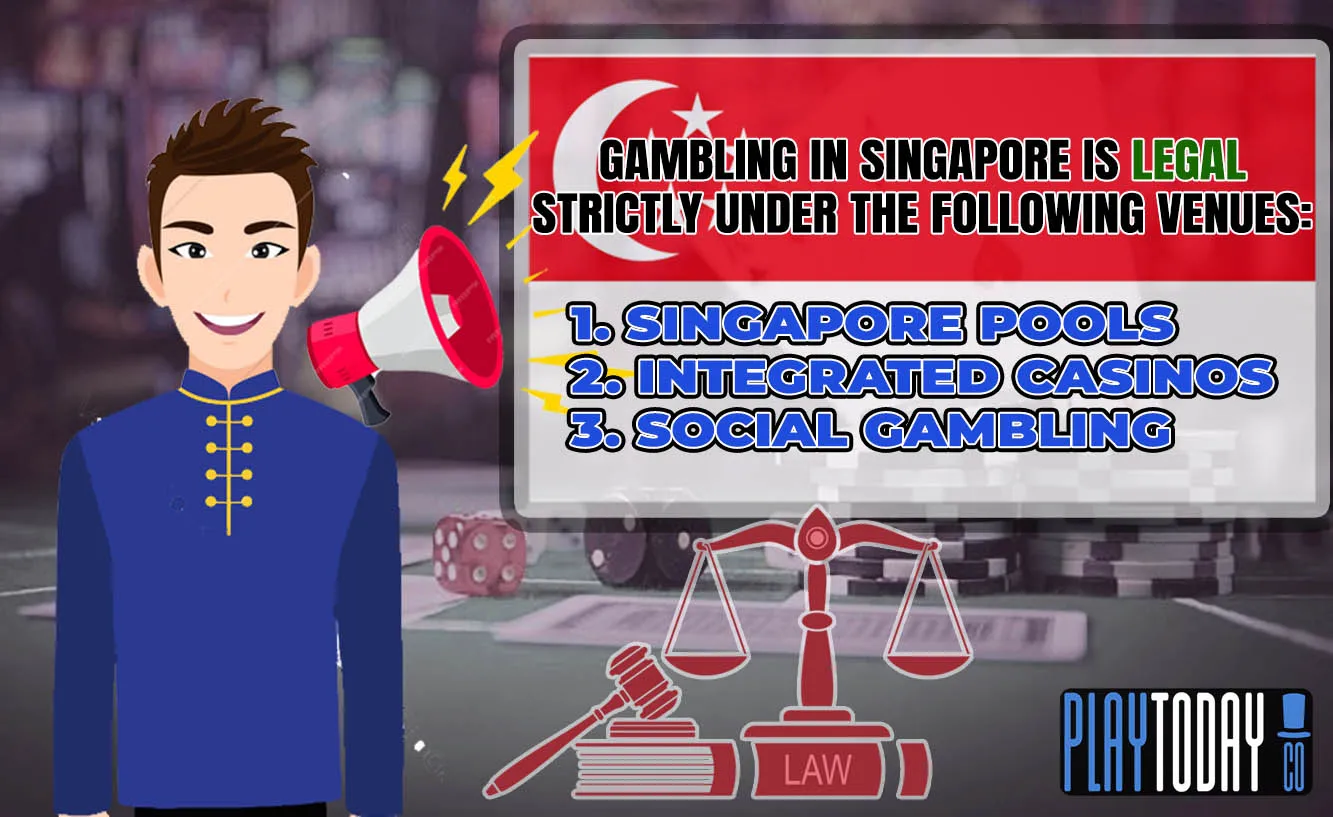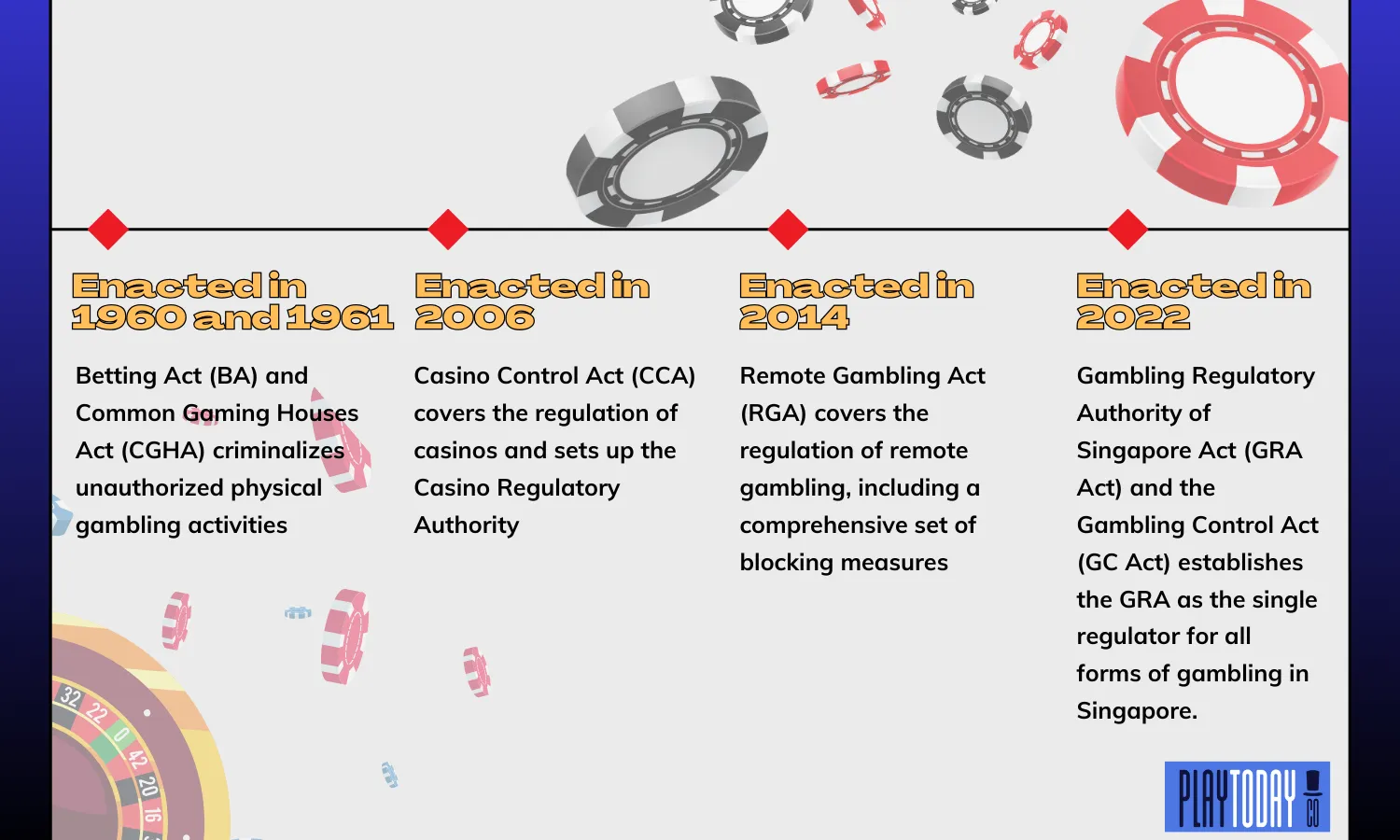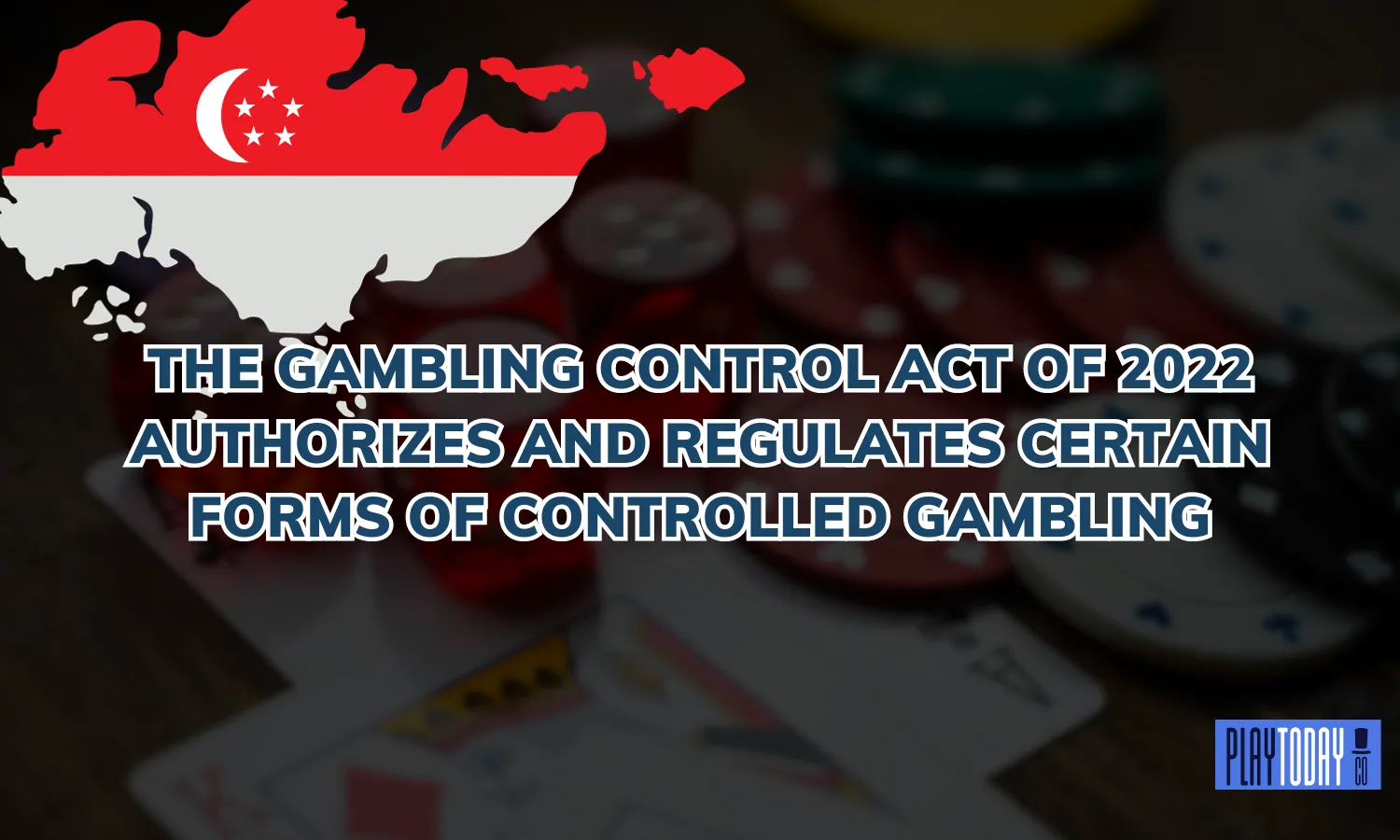Understanding Gambling Laws in Singapore A Comprehensive Guide
Gambling has been a part of human civilization for centuries, and Singapore is no exception to this phenomenon. However, with the rise of online gambling and its accessibility at our fingertips, it’s crucial to understand the laws and regulations surrounding gambling in Singapore. This comprehensive guide aims to provide you with an in-depth understanding of the current gambling laws in Singapore and how they impact both the players and operators.
Ov erview of Gambling Laws in Singapore
erview of Gambling Laws in Singapore
Singapore, a small island city-state located in Southeast Asia, has strict laws and regulations when it comes to gambling. The country has a long history of banning all forms of gambling, but over time, the government has implemented certain exceptions and loosened some restrictions. As of now, gambling is only legal in specific forms and strictly regulated by the government.
The primary legislation governing gambling in Singapore is the Casino Control Act (CCA), which was passed in 2006 and amended in 2010. The CCA establishes the Casino Regulatory Authority (CRA) to regulate and oversee the operations of casinos in Singapore. Apart from the CCA, other relevant laws include the Betting Act, the Private Lotteries Act, and the Common Gaming Houses Act.
It’s essential to note that even though some forms of gambling are legal in Singapore, the government takes a strict stance on illegal gambling activities. Anyone caught participating in or operating illegal gambling activities can face severe penalties, including fines and imprisonment. Therefore, it’s crucial to have a clear understanding of what constitutes legal and illegal gambling in Singapore.
Legal Forms of Gambling in Singapore
Casinos
Under the CCA, there are currently only two integrated resorts in Singapore that have been granted licenses to operate casinos – Marina Bay Sands and Resorts World Sentosa. These casinos offer a wide range of games, including slot machines, table games, and poker. Only individuals aged 21 and above are allowed to enter the casinos, and they must pay a levy of either S$100 for a day pass or S$2,000 for an annual pass.
Apart from these two integrated resorts, there are no other legal casinos in Singapore. The government has made it clear that they have no plans to issue any additional casino licenses in the future.
Lottery
Singapore Pools, a legal entity under the control of the Singapore Totalisator Board, is the only authorized operator for lotteries, sports betting, and horse racing in Singapore. They offer a wide range of games, including 4D, Toto, and sports betting on football and motor racing.
Similarly, the Singapore Turf Club is the only authorized operator for horse racing events in Singapore. Horse racing is immensely popular among locals, and the Singapore Turf Club also offers off-course betting at various outlets throughout the country.
Online Betting
As per the Betting Act, online betting activities are strictly prohibited in Singapore. This includes both remote and land-based betting activities. Therefore, websites offering online betting services are considered illegal, and anyone caught participating in such activities can face severe penalties.
However, there’s an exception to this law – Singapore Pools and Singapore Turf Club are the only two authorized operators that are allowed to offer online betting services in Singapore. They have been granted permission to operate online betting sites, but only for specific types of games, such as lotteries, sports betting, and horse racing.
Understanding Illegal Gambling Activities in Singapore

According to the law, any form of gambling activity that’s not explicitly legalized by the government is considered illegal in Singapore. This includes both land-based and online gambling activities. Engaging in illegal gambling in Singapore can result in severe punishments, ranging from fines to imprisonment.
Here are some of the common types of illegal gambling activities in Singapore:
Online Gambling
As mentioned earlier, online gambling is strictly prohibited in Singapore. This includes all forms of remote and land-based betting activities. It’s important to note that this law applies not only to operators offering online gambling services but also to individuals participating in such activities.
The government takes a firm stance against online gambling, and they have blocked access to thousands of websites that offer such services. Furthermore, the authorities also actively investigate and prosecute individuals involved in online gambling activities.
Unlicensed Betting Activities
Apart from Singapore Pools and Singapore Turf Club, any other entity or individual offering betting activities without a license is considered illegal. This includes street-side bookmakers, unauthorized online betting sites, and even friendly bets between friends.
Individuals who engage in unlicensed betting activities can face severe penalties, including imprisonment for up to six months, fines of up to S$5,000, or both.
Social Gambling
Social gambling, where individuals gather to gamble in a private setting, is also considered illegal in Singapore. This includes games like poker, mahjong, and other card or dice games. According to the law, the winner cannot receive any monetary or material prize, except for the nominal amount required to host the game.
Impact of Gambling Laws on Players and Operators
The strict gambling laws in Singapore have a significant impact on both players and operators alike. Let’s take a closer look at how these laws affect each of these parties.
Players
Gambling laws in Singapore have a direct impact on the players, specifically in terms of accessibility and restrictions. Most forms of gambling are heavily regulated, and players need to adhere to strict rules and regulations if they want to participate in authorized gambling activities.
For instance, as mentioned earlier, individuals must be at least 21 years old and pay a levy before entering the casinos. Similarly, the government has imposed strict regulations on online gambling, and players are advised to avoid illegal betting activities.
Operators
Operators, on the other hand, face a different set of challenges due to the strict gambling laws in Singapore. Firstly, the government has limited the number of licenses for casinos and lottery operators, which means that there’s tough competition for these licenses.
Moreover, operators must adhere to strict regulations and pay hefty fees to obtain and maintain their licenses. They also have to comply with various rules and guidelines imposed by the government, such as responsible gambling practices, advertising restrictions, and anti-money laundering measures.
Debates Surrounding Gambling Laws in Singapore

The gambling laws in Singapore have been a topic of debate for quite some time now, with arguments for both sides. Some believe that the current laws and regulations are too restrictive and limit the potential growth of the gambling industry, while others argue that the strict stance against gambling is necessary to maintain social order and prevent social issues associated with excessive gambling.
One of the main reasons why some people argue for more relaxed gambling laws is the potential economic benefits that come with it. For instance, with the rise of integrated resorts, the government has seen a boost in tourism, job opportunities, and tax revenue.
On the other hand, those who argue against gambling contend that the negative consequences of gambling far outweigh any potential benefits. They cite concerns such as addiction, financial problems, and crime as reasons to restrict gambling activities.
The Future of Gambling Laws in Singapore
As the world continues to evolve, so does the gambling industry. With advancements in technology, online gambling has become more prevalent, and governments around the world are beginning to take notice. In fact, some countries have started to regulate and legalize online gambling to tap into its potential economic benefits.
It remains to be seen whether Singapore will follow suit and relax its stance on online gambling. However, for the time being, it seems that the government will continue to enforce strict laws and regulations to prevent any social issues associated with gambling.
Conclusion
In conclusion, understanding the gambling laws in Singapore is crucial for both players and operators. It’s essential to adhere to these laws to avoid severe penalties and contribute towards maintaining a safe and socially responsible gambling environment in the country. As for the future, only time will tell whether Singapore will relax its stance on gambling or continue to uphold its strict laws and regulations.